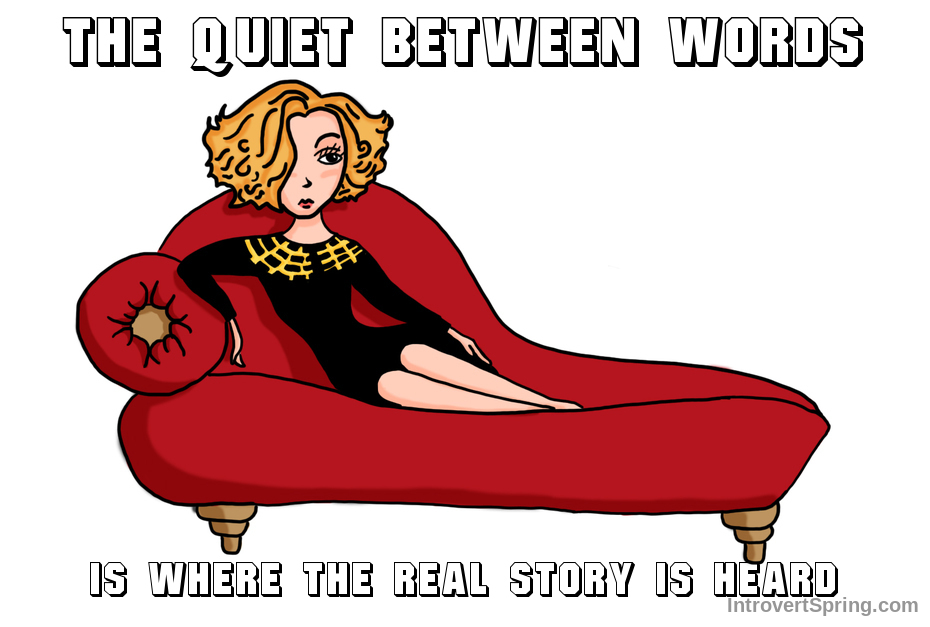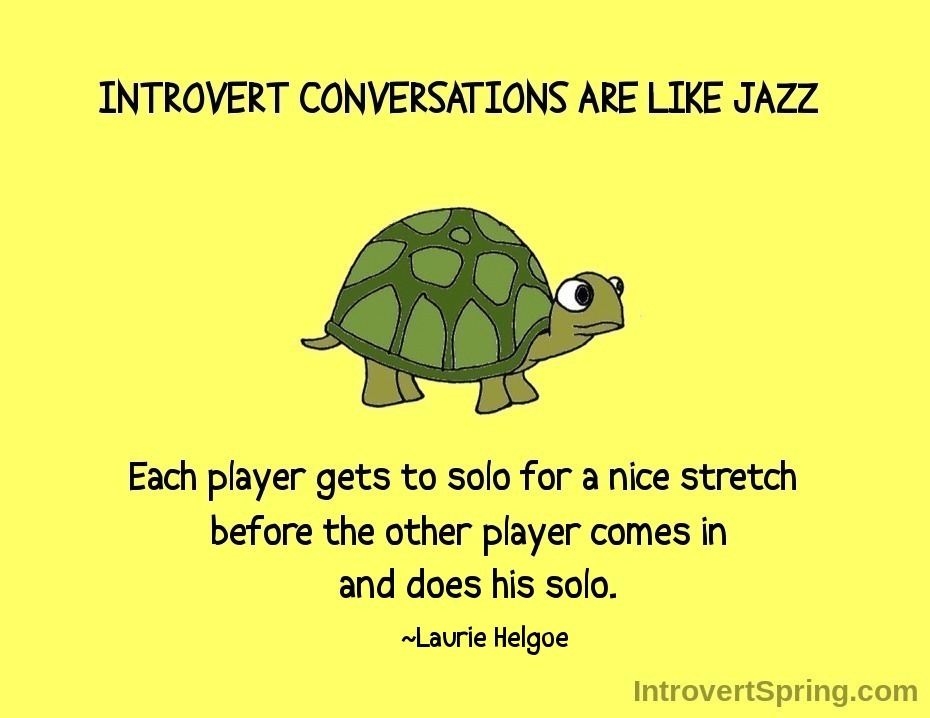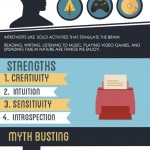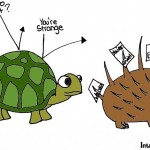Introverts aren’t known for having outstanding communication skills. But it turns out that there is an introvert advantage when it comes to conversation.
I have been reading a lot of articles about effective communication lately. Advice on the topic varies, but there are a few constants. All of the articles stressed the importance of listening, speaking slowly and making eye contact. Being a great storyteller was not mentioned. Neither was charisma or wittiness. These qualities are attractive, but not necessary for great conversation.
“Talk low, talk slow, and don’t talk too much.” – John Wayne
Listen
“An appreciative listener is always stimulating.” – Agatha Christie
In conversation, introverts tend to listen more than we speak. We prefer to wait until there is a clear break in conversation before interjecting. We expect the person we’re speaking with to return the favor. Laurie Helgoe compares this conversation style to jazz:
“Introvert conversations are like jazz. Each player gets to solo for a nice stretch before the other player comes in and does his solo.”
Introverts aren’t likely to constantly interrupt during conversation. This is important because interrupting is a communication no-no. Robert E. Fisher, author of Quick to Listen, Slow to Speak points out that “interruption is basically a self-serving and egotistical act. It blatantly states that what I have to say is more important than what you have to say.”
By the simple act of listening, introverts can be far better communicators than overly chatty extroverts.
Speak slowly
Introverts often feel self-conscious about how long it takes for us to verbalize our thoughts. At times it seems impossible to keep up with fast-moving conversations. The extrovert tendency to flit quickly between topics doesn’t help.
According to communication experts, we shouldn’t feel bad about our slow-talking ways – quite the opposite! Speaking slowly is a key component of effective communication. It allows others to understand, process and appreciate what we are saying. It can also make us appear more confident because speaking quickly is a sign of nervousness.
Taking time to compose your thoughts before speaking has the added advantage of making you appear more intelligent. Small pauses show that you are thinking. They also increase anticipation and tension, drawing the listener in.
Maintain eye contact
Introverts tend to make a lot of eye contact while listening. This shows that we are paying attention. It also increases trust. Shifty eyes give the impression that you are lying or distracted.
Many introverts are prone to breaking eye contact when they speak. We do this in order to formulate our thoughts. To have a greater impact, try to make eye contact every few seconds as you talk.
Increase your awesomeness
As you can see, introverts naturally make great communicators. Here are a few more things we can do to build on our existing skills:
- Use open body language – avoid crossed arms and slouching.
- Avoid judging – people can sense when they are being judged and this will cause them to close off.
- Identify and express emotions – your words and body language should reflect how you truly feel. This will increase trust and connection.
- Speak clearly – avoid mumbling.













On my conversations with people, I often stutter which makes me feel so bad about myself. Do other INFJs experience this? That’s why I think I need to spend more time thinking on my words before saying them in order to avoid stuttering.